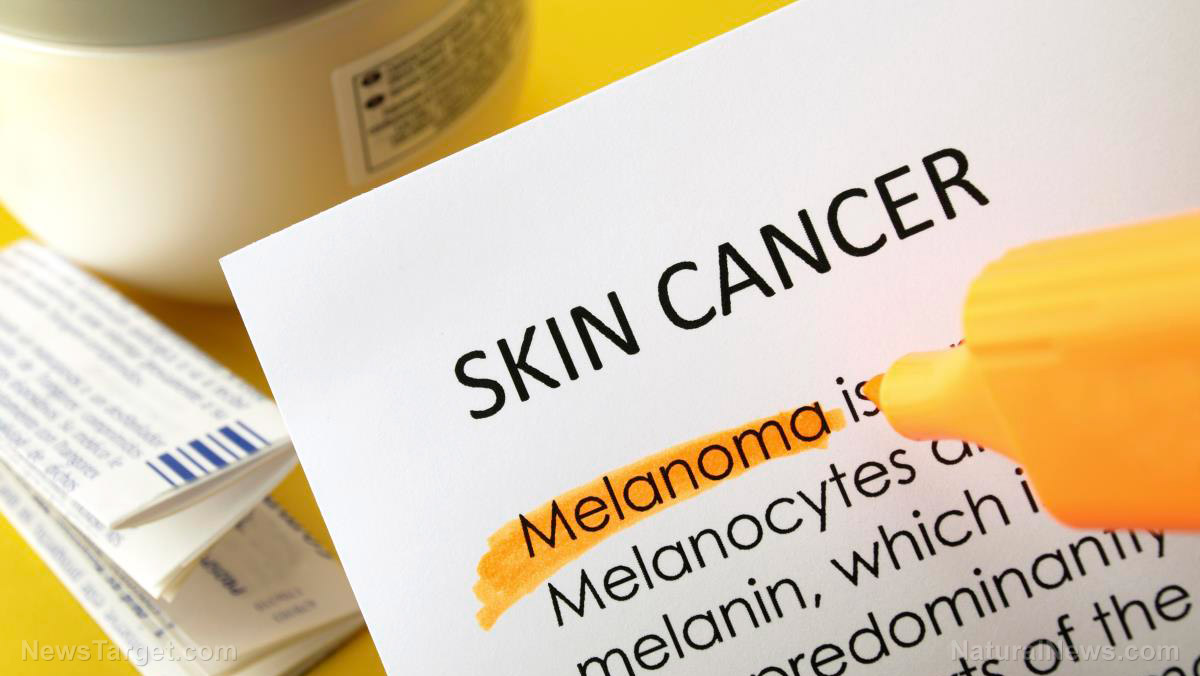Take care of your gut, it’s your first defense against cancer
11/14/2019 / By Melissa Smith

Taking care of your gut may be one of the ways that you can keep the threat of cancer at bay. A study published in the journal Nature Communications found that gut bacteria can enhance the ability of the immune system to fight cancers, particularly melanoma. The study was a collaboration involving over 40 scientists and three hospitals. It was led by researchers at Sanford Burnham Prebys Medical Discovery Institute. The researchers believe that their findings can improve and personalize treatments for cancer.
Melanoma is a rare type of skin cancer. It is most likely to invade nearby tissue and spread to other parts of the body. For this reason, it is considered a serious and life-threatening cancer. Although it is only responsible for about one percent of all skin cancers, metastatic melanoma is the leading cause of death by skin cancer in the U.S., according to the American Cancer Society (ACS). The ACS estimates that approximately more than 96,000 people will be diagnosed with melanoma, while over 7,200 people will die due to skin cancer this year in the U.S. (Related: Melanoma (skin cancer) found to be easily prevented with low-cost Vitamin B-3.)
The researchers identified 11 bacterial strains that activated the immune system and hampered the growth of melanoma in mice. Moreover, they found a signaling pathway that maintains protein health called unfolded protein response (UPR) as a primary link between the gut bacteria and the immune system’s ability to fight tumors.
The team found that UPR activity was lower in people with melanoma whose cancer was responsive to immune checkpoint therapy. They suggested that UPR activity is a potential marker for identifying people with melanoma who have a higher chance of benefiting from immune checkpoint therapy. Immunotherapy is a general term for treating diseases by inducing, enhancing, or suppressing an immune response.
Gut microbiota is important for the immune system’s ability to fight off tumors
For this study, the researchers examined mice that lack the RING finger protein 5 (RNF5), which aids cells in removing incorrectly folded or damaged proteins. They found that mice that lack RNF5 were able to suppress the growth of melanoma tumors, given that they had an intact immune system and gut microbiome.
However, the mice that had RNF5, or were treated with antibiotics, lost their ability to fight melanoma tumors. This suggested that gut bacteria play an important role in the immune system’s ability to fight tumors. In addition, this also confirmed that antibiotics negatively affect gut microbes.
Further tests demonstrated the involvement of several components of the immune system in the gut. The reduction in UPR in immune and gut cells was also enough to trigger immune cells.
With the use of advanced techniques, the researchers also discovered that the RNF5-lacking mice had bigger populations of 11 strains of bacteria. These strains also activated an anti-tumor response and decreased the growth of melanoma tumors when they were transplanted to germ-free mice.
To verify that the results were relevant in human disease, the researchers conducted a final set of tests in which they collected tissue samples from three groups of people with melanoma who then received treatment with checkpoint inhibitors.
Based on the results of these tests, the researchers confirmed that reduced response to treatment correlated with levels of UPR components. This indicated that these could be used as potential biomarkers to predict who would be most likely to benefit from immunotherapy.
The next step for the researchers is to identify the cancer-fighting metabolites that gut bacteria produce. They plan to test these metabolites to measure their ability to enhance anti-tumor immunity and to determine which probiotics might boost their cancer-fighting effects.
Sources include:
Tagged Under: anticancer, antitumor, cancer cures, cancer treatment, disease treatments, gut health, gut microbiota, immune system, melanoma, prevention, probiotics, remedies, research
RECENT NEWS & ARTICLES
COPYRIGHT © 2017 PREVENT CANCER NEWS



















